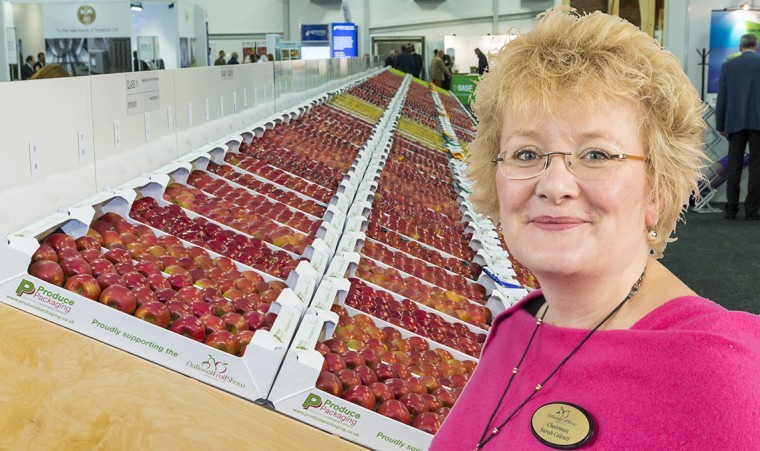A Nuffield conference is a wonderful thing, full of prospective scholars learning what they are getting into, nervous scholars just about to present to their peers and the likes of me, someone who has benefitted from the life changing experience that a Nuffield Farming Scholarship is.
There were recurring themes through the projects; precision agriculture, the need to manage without subsidy, the role of women in agriculture and abroad, effective marketing with consumer engagement. One thing that was outstanding is that, almost without exception, all scholars presented well, good advocates for their sector, getting their point across concisely with excellent detail and in many cases good gentle humour.
My highpoints:
Tanya Robbins spoke about how some of the most innovative farming businesses in many cultures are taken forward by women. Norway has just changed inheritance laws, the Alloidal act aims to have 30% of women in government and business, inheritance is now to the eldest child, offering them the opportunity to take on the family business. As with many cultures, Norway’s inheritance law was based around primogeniture, it was always the eldest son who inherited farms, there is now an opportunity for the most suitable candidate to take the lead. In Uganda there were many projects focussed on reducing waste – one in three calorie is wasted globally and there is a lot of work underway on improving routes to market.
There was a lovely quote from Tamara Hall (her study was on community supported agriculture) ‘you should live like you could die tomorrow, you should farm like you could live forever’. Tamara has brought her family business to the front of their local community by the provision of space for community horticultural initiatives (70 plots), she hosts open farm Sunday and Open farm school days. She is using their site and the contact to drive knowledge on supply chains, looking at how our diabetes epidemic and obesity crisis comes from the failing relationship with food, how the average consumer is disengaged with where their food comes from. Using her project and her experience she is making valuable linkages between producer, production and the end consumer. One of her most telling observations is that our nations obsession with the supermarket is in decline which gives great opportunities to producers.
Our Nuffield Fruiterers Scholar is Ali Capper, partner in a fruit and hops business in the West Midlands. She spoke of her feelings on joining our sector, how it was parochial. She felt like she was a lone voice calling for consumer engagement, looking for market expansion opportunities overseas. Her report makes recommendations for all the divisions of her farming operation, it analyses consumer trends, the requirements for development and makes some strong recommendations for each area. She feels that British farmers and growers would benefit massively from better marketing and collaboration, we need to communicate our USP and the move to successful exporting needs good marketing.
Hops – hop breeding programme and crop protection lobby. POs dominate selling but the industry collaboration ends there. We need to look at New Zealand, they create customer desire and premium in commodity market. If we were to look at the USP British Hops it has to be the ‘terroir’ though there is little officially to substantiate this statement, it needs scientific validation. Ali’s Nuffield scholarship was used, in part, to co-author paper with Peter Derby presented at the Technical conference Asia Pacific in Vietnam. The conference contrasted greatly to the environment where produce is traded off the pavement. In Ali’s opinion terroir for hops comes down to the different level of Myrcene, which define the depth and complexity of flavour and is lower in British hops that any other source of supply; it makes our hops sought by brewers worldwide. British hops have been introduced to a completely different market place in Asia, a fast growing, developing market.
What is clear from Ali’s report (and I agree completely) is that we need to take responsibility for fruit marketing in the UK, we need to create demand, we need to make apples available like snacks. They should be available at the garage, in the cornershop, by the till – ready to eat, in a convenient format, alongside the sweets as a healthier alternative. Her summation was the following equation Collaboration + USP + creative marketing = creating demand. We want the retailers to replace imports with home grown, we must raise the profile of British produce in order for that to happen, we are too quiet. We need to focus all our energy not on fighting between marketing groups but creating new, collaborative opportunities that benefit both growers and their customers.
Returning to the need to farm without subsidy, with the UKIP success in Rochester fresh in everyone’s minds, there is a real threat to our labour source, our ability to harvest and manage farms and also the potential for the UK to be removed from Europe removing access to subsidy. One thing that Nuffield and the conference brought home is that there is a real danger that a proportion of our Agricultural industry is very vulnerable. How many units farm for subsidy and are financially inviable without financial props?




